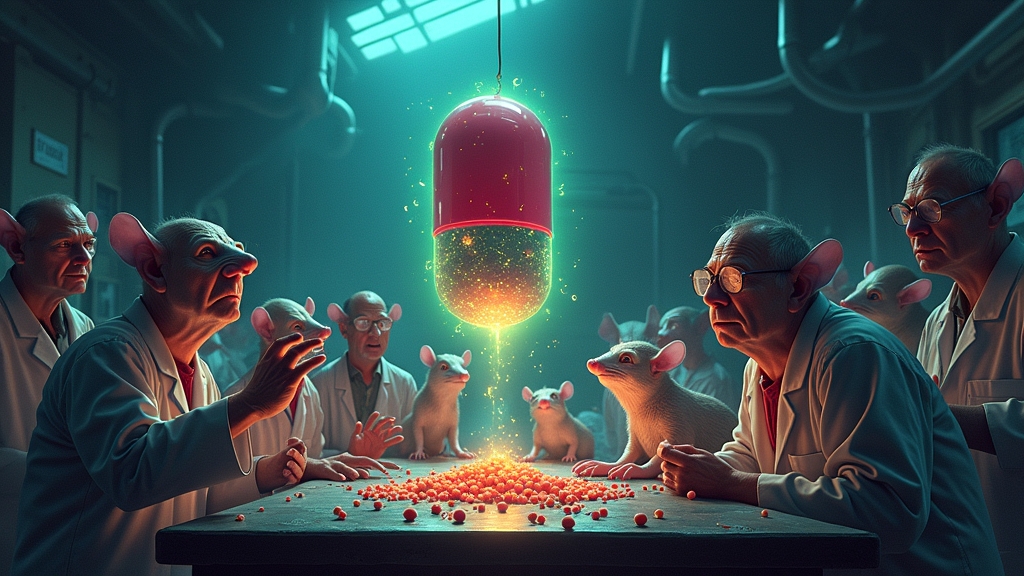In Bold New Strategy, White House Declares War on All Known Problems, Aims to Solve Them by Thursday
At a recent MIT extravaganza, resplendent with more PowerPoint slides than a Silicon Valley start-up’s desperate pitch meeting, White House science advisor Arati Prabhakar boldly announced what could only be described as “America’s official War on Everything That Sucks.” With the audacity that rivals an infomercial on steroids, Prabhakar painted a picture of hope, dreams, and a future where minor nuisances like cancer, climate change, and artificial intelligence acting like hormonal teenagers are swiftly being tackled—ideally, sometime next week.
“The purpose of science and technology, folks, is to open possibilities,” declared Prabhakar to a captivated audience of brainiacs and over-caffeinated students at MIT. “Because if we learned anything from superhero movies, it’s that with great power come great aspirations. Also echoing the sentiments of every motivational poster ever.”
The science oracle went on to outline a trifecta of societal migraines—cancer prevention, climate change, and AI’s inevitable uprising—suggesting that through the sacred magic of funding and collaborative workshops featuring catered lunches, the U.S. would maintain its position at the top of the global science food chain. “And to think,” Prabhakar mused nostalgically, “all of this began with World War II’s accidental invention: research funding!”
Prabhakar got everyone’s rapt attention by boasting about commercializing tech with the enthusiasm of a telemarketer who insists “this limited-time offer could change your life!” She mentioned that, thanks to the genius of capitalism, money actually appears where growth is suspected, much like an enthusiastic, slightly sweaty handshake appearing at a networking event.
Suzanne Berger, MIT’s resident expert in making even the driest economic speak sound exciting, spoke tearfully of the day when gravitational waves became cool again, just like crop tops and vinyl records. Her colleague Nergis Mavalvala waved her approval from the audience, evidently convinced that reinvigorating science requires more PowerPoint templates and fewer emails marked “urgent.”
Prabhakar, who has spent more years in government positions than most spend perfecting their mac and cheese recipe, reassured the crowd that America’s Cancer Moonshot program is on track. Its goal? Halving the cancer rate in 25 years. No confirmation yet on whether the moon landing timetable was used as a benchmark here.
In the spirit of blind optimism, Prabhakar painted AI as both a promising ally and the world’s scariest toddler. “I think it’s about time we tame AI and ensure it helps people do more, and maybe even pay them for it,” she remarked. Skeptics were assured this would be achieved via a carefully curated Spotify playlist and perhaps some strong coffee.
On the climate front, Prabhakar relayed that the forthcoming climatic Armageddon might actually be averted if everyone subscribed to her newsletter on sustainable hope. Either that or the bipartisan infrastructure bill and a dash of social media awareness might just do the trick.
In a heartwarming aside, Prabhakar noted that science still holds a high ranking on the marriage market, cozying up behind “brilliant” professions like pet groomer and professional cuddler. “Take heart, single scientists! You’ve still got it,” she quipped, evidently reassuring attendees that their dating profile is more than just potential romantic utilitarianism.
As scientists continue to bridge the chasm of public trust with facts and occasional chocolate incentives, Prabhakar concluded by revealing Biden’s grand single-word manifesto for America: “possibilities.” Because when in doubt, create broad possibilities that can mean everything yet nothing, much like a magician’s mysterious hat trick that keeps everyone guessing.




